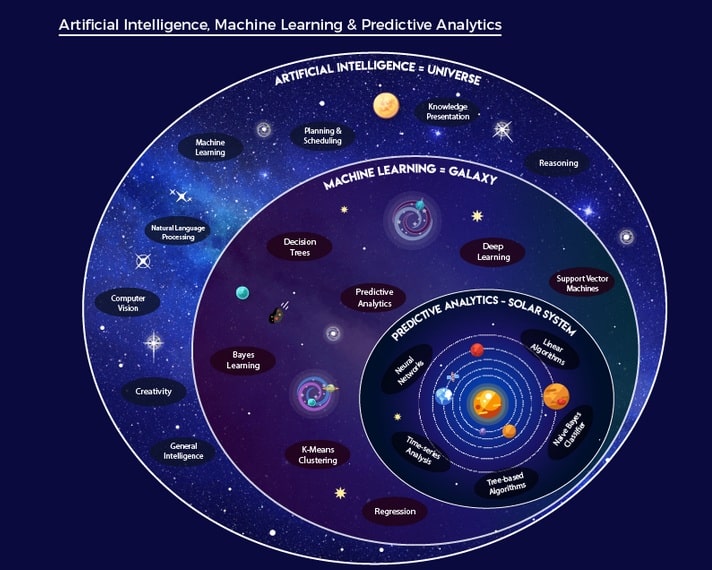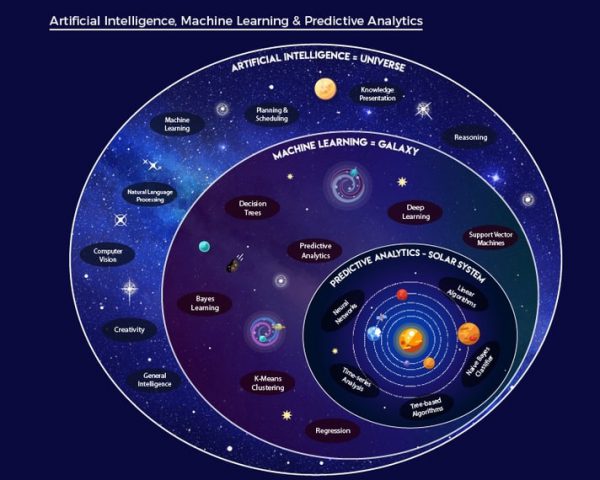- New research suggests the universe is teaching itself physics as it evolves.
- The researchers want to use this study to spin off a whole new area of cosmology research.
- The “learning” of the universe is similar to evolution.
In fascinating new research, cosmologists explain the history of the universe as one of self-teaching, autodidactic algorithms.
The scientists, including physicists from Brown University and the Flatiron Institute, say the universe has probed all the possible physical laws before landing on the ones we observe around us today. Could this wild idea help inform scientific research to come?
In their novella-length paper, published to the pre-print server arXiV, the researchers—who received “computational, logistical, and other general support” from Microsoft—offer ideas “at the intersection of theoretical physics, computer science, and philosophy of science with a discussion from all three perspectives,” they write, teasing the bigness and multidisciplinary nature of the research.
Here’s how it works: Our universe observes a whole bunch of laws of physics, but the researchers say other possible laws of physics seem equally likely, given the way mathematics works in the universe. So if a group of candidate laws were equally likely, then how did we end up with the laws we really have?
The scientists explain:
“The notion of ‘learning’ as we use it is more than moment-to-moment, brute adaptation. It is a cumulative process that can be thought of as theorizing, modeling, and predicting. For instance, the DNA/RNA/protein system on Earth must have arisen from an adaptive process, and yet it foresees a space of organisms much larger than could be called upon in any given moment of adaptation.
We can analogize to the research of Charles Darwin, who studied all the different ways animals specialized in order to thrive in different environments. For example, why do we have one monolithic body of laws of physics, rather than, say, a bunch of specialized kinds of finches? This is an old question that dates back to at least 1893, when a philosopher first posited “natural selection,” but for the laws of the universe.In the paper, the scientists define a slew of terms including how they’re defining “learning” in the context of the universe around us. The universe is made of systems that each have processes to fulfill every day, they say.Each system is surrounded by an environment made of different other systems. Imagine standing in a crowd of people (remember that?), where your immediate environment is just made of other people. Each of their environments is made of, well, you and other stuff.
Evolution is already a kind of learning, so when we suggest the universe has used natural selection as part of the realization of physics, we’re invoking that specific kind of learning. (Does something have to have consciousness in order to learn? You need to carefully define learning in order to make that the case. Organisms and systems constantly show learning outcomes, like more success or a higher rate of reproduction.)
The researchers explain this distinction well:
“In one sense, learning is nothing special; it is a causal process, conveyed by physical interactions. And yet we need to consider learning as special to explain events that transpire because of learning.”
Consider the expression “You never learn,” which suggests that outcomes for a specific person and activity are still bad. We’re using that outcome to say learning hasn’t happened. What if the person is trying to change their outcomes and just isn’t succeeding? We’re gauging learning based on visible outcomes only.
And that’s not all, they say.
“If laws can evolve, then they can do more: We consider the notion that only a universe that learns its laws can be expected to engender novel phenomena like life and physicists.”
Article: The Universe Is a Machine That Keeps Learning, Scientists Say

